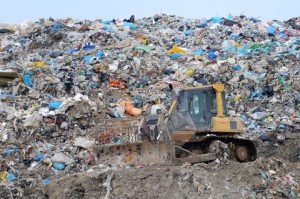Task force recommends integrated approach to urban waste management
14 May 2014
A task force set up by the government to formulate better ways of converting waste-to-energy has recommended an integrated approach towards municipal waste management (MSW), which stresses on the reduction and segregation of waste at source and efficient utilisation of various components of the waste.
 The task force set up to identify technically feasible, financially affordable and environmentally sound processing and disposal technologies for municipal solid waste, has emphasised converting combustible waste into refuse derived fuel (RDF) to be used in RDF-based power plants.
The task force set up to identify technically feasible, financially affordable and environmentally sound processing and disposal technologies for municipal solid waste, has emphasised converting combustible waste into refuse derived fuel (RDF) to be used in RDF-based power plants.
The committee, headed by Planning Commission member K Kasturirangan, has suggested setting up of centralised or decentralised waste processing facilities keeping in view the quantity and quality of waste generated and financial viability of the processing technology.
The report of the committee submitted to Planning Commission deputy chairman Montek Singh Ahluwalia provides guidance for the selection of appropriate technology and clearly indicates technologies that could be adopted by various classes of cities.
It has also evaluated technological options, financial mechanisms and institutional arrangements to enhance resource recovery and promote waste to energy technologies.
The report strongly recommends public-private-partnership (PPP) as a mode of service delivery to achieve the target set for sustainable waste management. It has also detailed a model scheme for setting up waste to energy projects through PPP mode, including a viability gap funding up to 40 per cent.
The report is being sent to the chief ministers of all the states for use as a guideline document for integrated waste management. The report is expected to provide appropriate linkages to the new municipal solid waste rules being currently framed by MoEF and the national manual for solid waste management being revised by MoUD.
Urban India currently generates 170,000 tonnes of municipal solid waste (MSW) each day. Only 19 per cent of this waste is treated and the remaining goes to dump sites causing serious problems to health and environment, the report pointed out, adding that the situation has started assuming alarming proportions in the country.